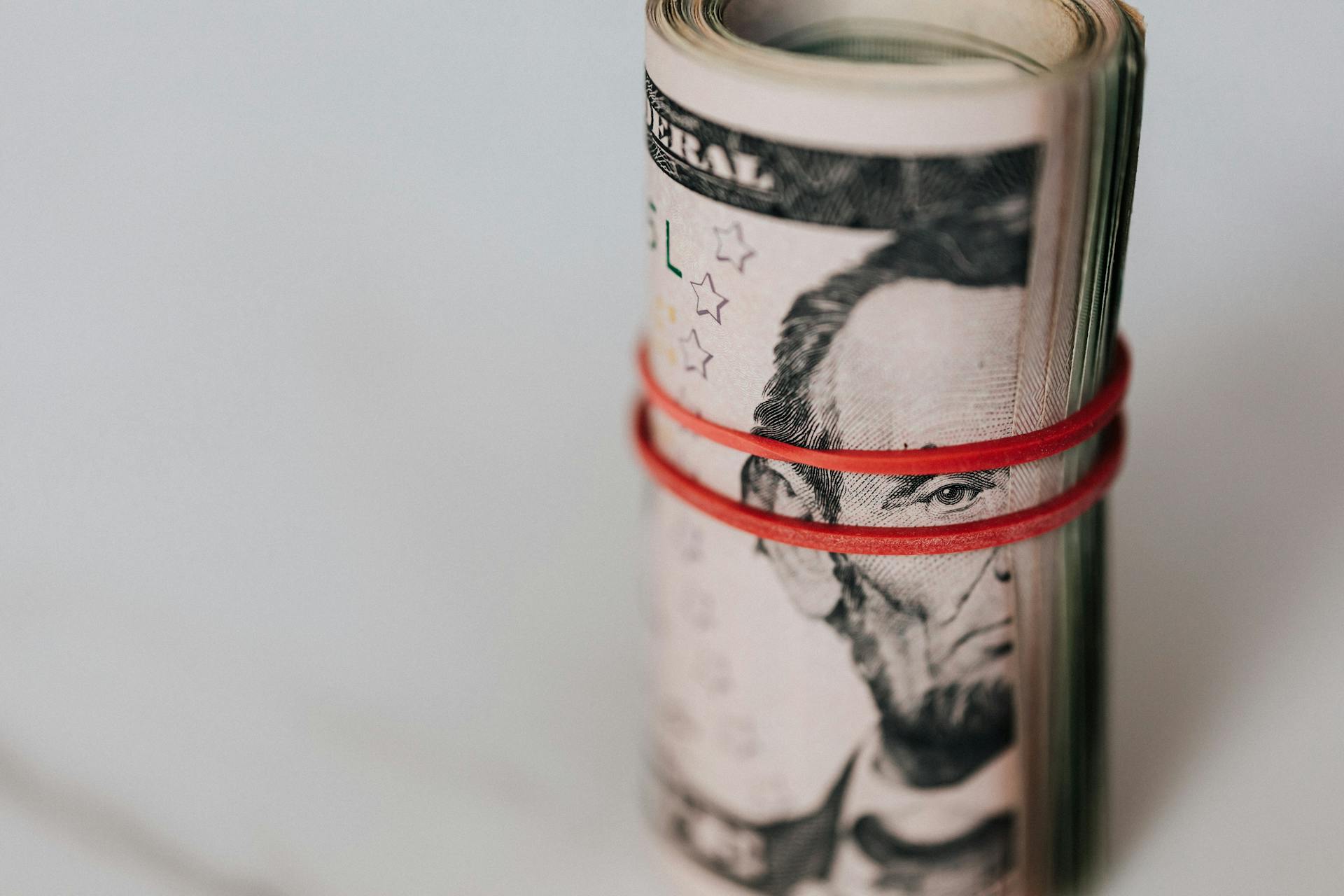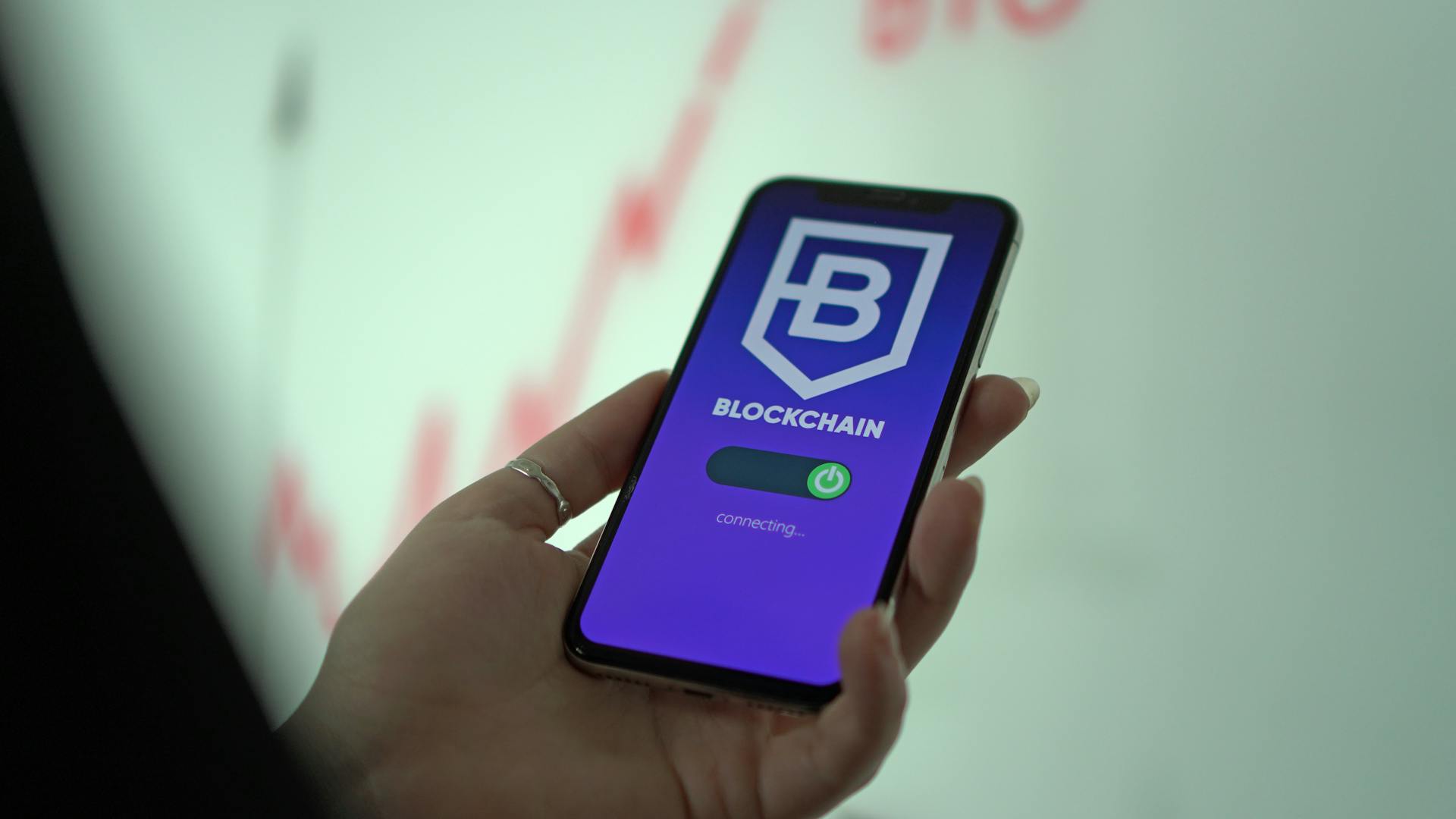
Be cautious of fake debt collectors who will stop at nothing to get their hands on your hard-earned money.
Fake debt collectors often use intimidation tactics to scare people into paying debts that don't even exist. They may threaten to sue you, report you to credit bureaus, or even arrest you.
To protect yourself, it's essential to verify the identity of the debt collector. Check if they're registered with the Federal Trade Commission (FTC) or the Consumer Financial Protection Bureau (CFPB).
Suggestion: Fake Debt Collectors Phone Numbers
Understanding Scams
Scams can be very believable, especially if the scammer has access to your credit report. They may call asking you about actual debts using real details of the transaction, but this doesn't mean the debt is legitimate.
The line between a good loan and a bad one is often blurry. Be cautious of lenders that require upfront fees, unregistered or unlicensed lending, no credit check, unusual forms of payment, phone or email solicitation, no physical address, and insecure website addresses.
Red flags to watch out for include lenders that request payment in the form of gift cards, wire payments, Bitcoin, or other non-refundable cash equivalents. Be wary of high-pressure salespeople and grammatical errors in emails, letters, flyers, and website text.
If you notice any of these red flags, take it as a sign that something isn't right. Always verify the debt is legitimate, the agency is legitimate, and check your credit reports. Protect your information and contact the original creditor.
Legitimate collectors will never do the following:
- Threaten you with consequences for not paying
- Demand immediate payment on a loan or credit card debt that you never took out
- Ask for payment through untraceable methods like cryptocurrency or gift cards
Know your rights under the Fair Debt Collection Practices Act (FDCPA) and report any suspected scams to the Federal Trade Commission (FTC).
Here are some common red flags to watch out for:
Identifying Fake Collectors
Fake collectors will often withhold information from you, so it's essential to know what they're required to share. They must tell you the name of the creditor, amount owed, and your rights to dispute the debt.
If a collector withholds this information, it's a red flag. Legitimate collectors have 5 days to provide this information in writing.
Pressure tactics are another sign of a fake collector. They might pressure you to pay by money transfer or prepaid card, which are often untraceable or non-reversible payment methods.
Threats to your job or reputation are also a warning sign. Fake collectors might threaten to tell your boss or family members about the debt, but this is against the law.
Fake collectors often threaten you with jail time or fines, but failure to pay a debt will not lead to your arrest, unless you owe criminal fines or restitution.
Be cautious if a collector requests sensitive personal financial information, such as your bank account number, routing numbers, or social security number.
Here are some common red flags to watch out for:
- Withholding information from you
- Pressuring you to pay in odd ways
- Threatening you with jail time
- Threatening to harass others
- Asking for personal information
- Saying they're from the IRS
If you're unsure about any aspect of the call, trust your gut and don't give out any personal or banking information. You can request their name, phone number, address, and license number, and do some of your own research before moving forward.
Protecting Yourself
If you're dealing with a debt collector, it's essential to know your rights and how to protect yourself. Legitimate debt collectors can't use obscene language, threaten violence, or make false statements that imply they're affiliated with the government. They also can't contact you at work, tell your coworkers or family about your debt, or harass you with repeated calls.
If you suspect a debt collector is violating your rights, you can file a complaint with the FTC's Complaint Assistant, report the issue to your state Attorney General, or sue the creditor in small claims court. In extreme cases, you may be able to recover money or damages.
To verify a debt collector's legitimacy, ask for a callback number and research it online. Contact your original creditor to confirm the debt collection is legitimate. Check your credit report for any past-due accounts, and submit a complaint to the FTC if you're unsure. Consider signing up for a call-blocking service like Robokiller to protect yourself from suspicious activity.
A fresh viewpoint: Debt Collector
Some common red flags to watch out for include debt collectors asking for payments through cryptocurrency, Venmo, or gift cards, or high-pressure tactics to click links or verify account info. Legitimate collectors never ask for immediate payment through untraceable methods.
Here are some warning signs that a call may not be as real as it seems:
Trust your gut and don't give out any personal or banking information if you're unsure about any aspect of the call. If you think you've been affected by a debt collection fraud scam, call your bank immediately and report it to the FTC.
Checking Legitimacy
To check if a debt collector is legitimate, you should ask for everything in writing, never negotiate or make payment based solely on a phone call. Research the collection agency online, looking for a legitimate website or information on sites like the Better Business Bureau to find out if the business is real.
You can also call your state attorney general's office to find out if there are any complaints about the agency and if it can legally operate in your state. Checking your credit reports can also help you understand whether you might owe a debt you didn't know about.
Here are some common red flags to watch out for:
Verify Collector's Identity
To verify a debt collector's identity, you need to take some extra steps. Check through official channels first, such as searching the CFPB's Consumer Complaint Database.
You can also verify a collector's license through the NMLS Consumer Access. This will give you a better idea of whether they are legitimate or not. Don't trust the number they called you from - instead, check their official contact info independently.
Here's a step-by-step guide to verifying a collector's identity:
- Check the CFPB's Consumer Complaint Database
- Verify their license through NMLS Consumer Access
- Don't trust the number they called you from - instead, check their official contact info independently
- Call them back using the verified contact info you found through official sources
By taking these steps, you can ensure that you're dealing with a legitimate debt collector and not a scammer.
Verify Agency Legitimacy
To verify the legitimacy of a collection agency, start by asking for everything in writing. This is a crucial step, as you should never negotiate or make payment based solely on a phone call.
You can research the collection agency online to see if they have a legitimate website or if there are any complaints about them on sites like the Better Business Bureau.
Call your state attorney general's office to find out if there are any complaints about the agency and if it can legally operate in your state.
If a collector withholds information from you, such as the name of the creditor, amount owed, or your rights to dispute the debt, it's a red flag that something's not right.
Here are some warning signs that a call may not be as real as it seems:
Trust your gut and don't give out any personal or banking information if you're unsure about any aspect of the call.
Taking Action
If you're being harassed by a fake debt collector, it's essential to take action quickly.
Debt collector scams can be very stressful, but consulting with an attorney can provide you with a clear understanding of your rights.
An experienced attorney can help you navigate the situation and stop the scammers from calling you.
You can also consider contacting an attorney who specializes in debt collection, such as The Tayne Law Group, which has decades of experience settling collection accounts for less than what clients owe.
To get started, call (866) 890-7337 for a free consultation.
A unique perspective: Attorney to Fight Debt Collectors
Frequently Asked Questions
What is the 11 word phrase to stop debt collectors?
The 11-word phrase to stop debt collectors is: "Please cease and desist all calls and contact with me, immediately." This phrase can provide significant protection against aggressive debt collection practices.
Sources
- https://www.robokiller.com/scam-call-alerts/debt-collection
- https://www.ovlg.com/scam.html
- https://www.credit.com/blog/3-strategies-for-dealing-with-debt-collection-scammers/
- https://myfloridacfo.com/division/consumers/fraudscams
- https://attorney-newyork.com/debt-relief/top-debt-collector-scams-to-watch-out-for/
Featured Images: pexels.com


